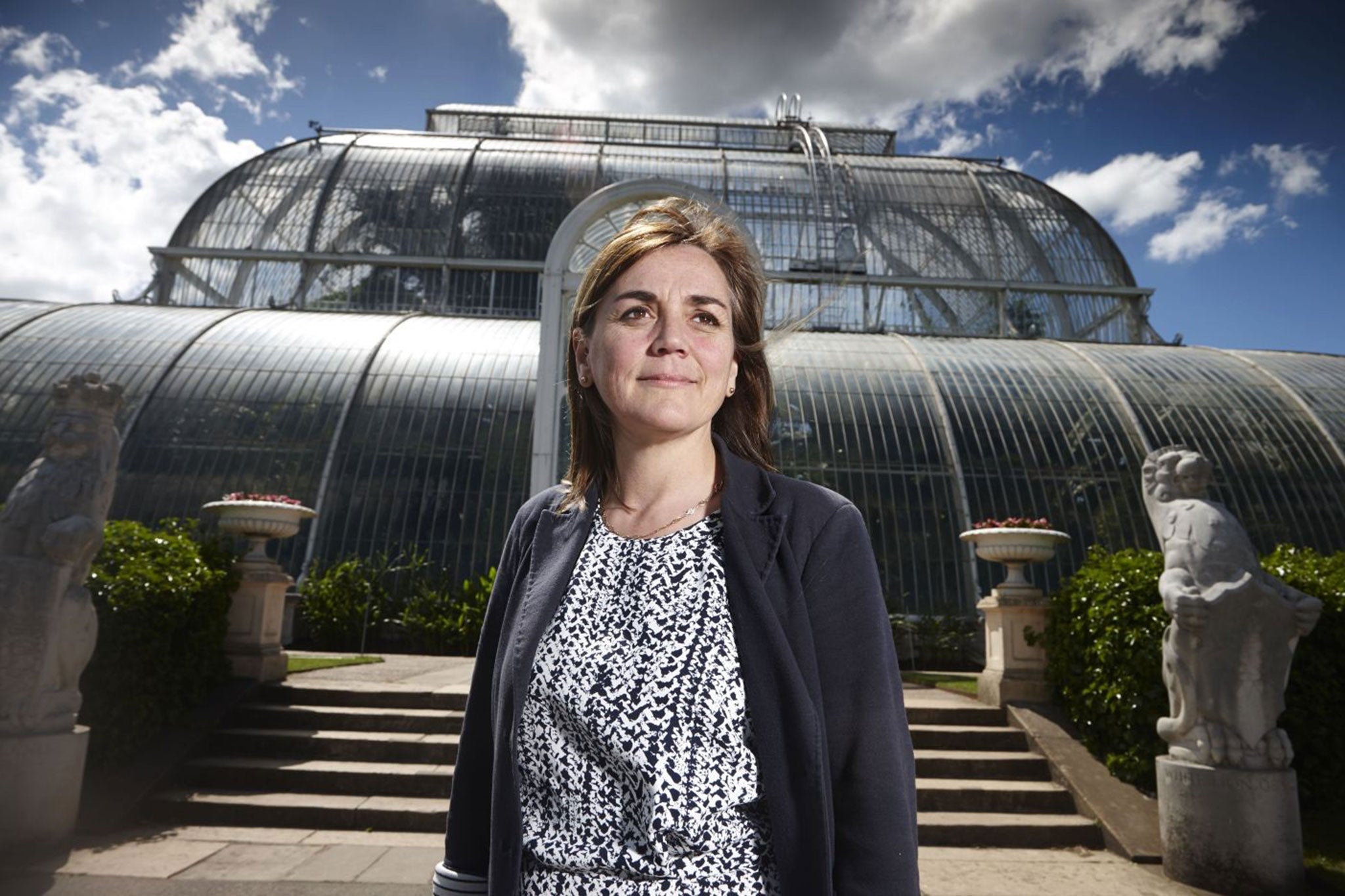Radio 4's Plants: from Roots to Riches: This bone-dry botany show isn't going to grow on me

I am not, it has to be said, a plant person. Aside from the palm in my bathroom, which thrives in the face of outrageous neglect, I kill everything green that crosses my threshold.
So I probably wasn't the ideal listener for Radio 4's new mega-series Plants: from Roots to Riches, which promised to "explore our changing relationship with plants since the birth of botany". On the other hand, perhaps Professor Kathy Willis, Head of Science at the Royal Botanical Gardens in Kew, and presenter of this epic 25-part investigation, would help me find my green fingers, or at least instil some sort of interest in plants.
So off I went with Willis to the palm house in Kew, that translucent cathedral to shrubbery, ready to be converted. There she stood underneath a cycad that, she said, was very, very old and very, very big. It's a "massive towering figure" she assured us. "I'm dwarfed underneath it," she added. Crikey, I thought, my head filling with visions of Audrey II from Little Shop of Horrors. So I Googled it and found myself face to face with what looked like an oversized Yucca, the houseplant of choice before orchids turned all our homes into boutique hotels.
I tried not to feel underwhelmed. The cycad may not look like much but it is, we learned, the mother of all pot plants. It has been around for 280 million years, survived multiple climate changes and pre-dates most mammals. This one had come to Kew in 1775, when it was already well into middle age. Now it has earned the right to sit in a glass house, like an exotic antique, while people come and gawp.
How do visitors react to their first encounter with a cycad?" Willis asked a volunteer guide. "For a lot of people, the first thing they do is get out their camera," came the reply. I checked to see if my heart was racing. It was not.
After the anticlimax of the cycad came a lengthy discussion about the system of botanical nomenclature as devised by the Swedish taxonomist, Carl Linnaeus. The following day we heard about Joseph Banks, who was a patron of botanical science and a collector of plants the world over.
Banks was apparently a larger-than-life figure, though it was hard to find any evidence of this in his dreary missives about the best way to transport plant specimens and keep them alive.
Clearly, this was no Attenborough series, with a budget to rival the American GNP, and helmed by a presenter with more gravitas than 20 Greek philosophers. And yet try as I might, in Willis's hands, I just wasn't feeling the explosive joy of our nation's plant life.
Perhaps it was her insistence on focusing on the study of plants, rather than their workings, that drained all colour from the subject. Or perhaps it was my bad attitude.

Watch Apple TV+ free for 7 days
New subscribers only. £8.99/mo. after free trial. Plan auto-renews until cancelled

Watch Apple TV+ free for 7 days
New subscribers only. £8.99/mo. after free trial. Plan auto-renews until cancelled
Either way, listening to her bone-dry reflections on botanists past was like leafing through a dusty old encyclopaedia, and it confirmed my long-held suspicion: botany is boring.
By contrast, this week's Desert Island Discs with Doug Allan, biologist, explorer and long-term cameraman on various Attenborough series, effortlessly got the blood pumping.
He told of once being grabbed by a walrus that mistook him for a seal so he hit it on the head and it let him go. "It was only later," he said, "that I was told that they kill seals by putting (their) lips on to the seal's head and sucking their brains out." Now that's what I call nature.
Subscribe to Independent Premium to bookmark this article
Want to bookmark your favourite articles and stories to read or reference later? Start your Independent Premium subscription today.

Join our commenting forum
Join thought-provoking conversations, follow other Independent readers and see their replies